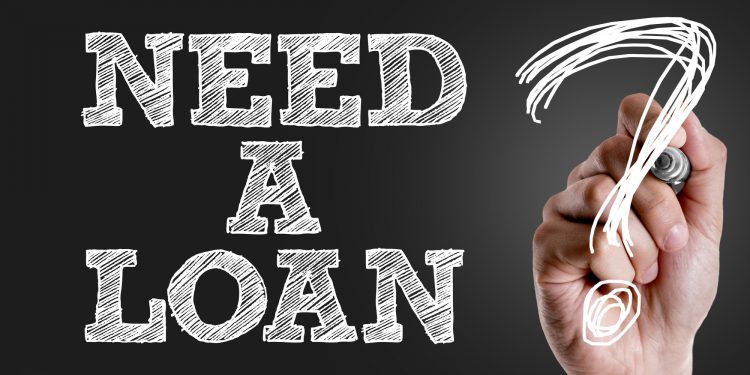The Ultimate Guide to Recognizing Pre Approval Student Loans
The Ultimate Guide to Recognizing Pre Approval Student Loans
Blog Article
The Function of Credit History in Getting Small Company Loans for Business Owners
In the affordable landscape of entrepreneurship, safeguarding a little company funding typically hinges on the pivotal element of credit ratings. A greater debt score can open doors to desirable lending problems, while a reduced score might present substantial barriers.
Understanding Credit Rating
Credit history are critical mathematical depictions of a person's creditworthiness, acting as a crucial aspect in financial decision-making for lenders. These scores are originated from a comprehensive evaluation of a person's credit report, encompassing elements such as settlement background, credit application, size of credit rating, new charge account, and sorts of credit scores made use of. Normally ranging from 300 to 850, higher ratings signify reduced danger to lending institutions, while lower scores show greater threat.
The computation of credit report is lugged out by credit score bureaus using exclusive algorithms, with one of the most extensively acknowledged versions being FICO and VantageScore. Each design may weigh aspects a little in a different way, yet they all objective to provide a constant action of credit score risk. A strong credit rating mirrors the person's dependability in managing financial obligation, making timely settlements, and maintaining a healthy equilibrium in between credit score made use of and offered credit score.
It is very important for individuals and local business owner to recognize their debt scores, as these numbers can have far-reaching effects beyond personal money. Regularly monitoring one's credit scores record, dealing with errors, and adopting sound economic habits can considerably boost debt scores, therefore improving the individual's total financial profile and credit reliability.
Significance for Financing Authorization
Understanding one's credit rating is fundamental, as it plays a substantial role in the procedure of finance approval for small companies. Lenders use credit rating as a key metric to evaluate the credit reliability of candidates. A solid credit history suggests a history of liable economic behavior, suggesting to lending institutions that the applicant is likely to repay the loan on schedule. A high credit history score can considerably improve a business owner's chances of securing a financing with positive terms, including reduced rate of interest rates and more flexible settlement choices.
On the other hand, a reduced credit report might signal prospective risk, leading lending institutions to either decline the loan application or enforce more stringent conditions. This makes it vital for business owners to be knowledgeable about their debt standing, as it directly affects their capacity to gain access to funding. Credit ratings offer as a standardized action that allows lending institutions to streamline their decision-making procedure, ensuring effectiveness and consistency. As small companies usually call for timely access to funds for development and sustainability, preserving a robust credit rating becomes necessary. Thus, understanding and handling one's debt rating is a vital part of planning for finance applications and achieving service success.
Aspects Affecting Scores
A number of variables contribute to the decision of a credit report, each playing a pivotal role fit a person's debt account. Among these, payment history sticks out as the most influential, mirroring the timeliness and uniformity of financial obligation payments. Lenders carefully scrutinize this facet to examine monetary dependability. Similarly, the quantities owed, or credit usage, significantly influence scores. A high proportion of utilized debt to readily available credit score can suggest economic overextension, negatively affecting credit reliability.
Length of credit rating history additionally aspects right into credit report calculations, with a much longer credit rating normally seen more favorably. This metric provides understanding into the individual's long-lasting monetary actions, providing lenders a broader perspective on their debt monitoring abilities. Additionally, the kinds of credit in operation are taken into consideration, as a mix of charge account, such as rotating credit report cards and installment fundings, can demonstrate the capability to manage various monetary commitments.
Lastly, recent debt questions may affect scores (pre approval student loans). Frequent see this applications for new credit rating can suggest monetary distress, thus adversely impacting ball game. Each of these components is critical in the thorough assessment of a credit rating, impacting an entrepreneur's ability to safeguard a bank loan
Improving Your Credit History
Enhancing one's credit score is akin to supporting a yard; cautious focus to key areas can yield considerable renovations. Settlement background comprises a substantial part of a credit score; thus, setting up automated suggestions or settlements can assist preserve uniformity. High credit usage ratios, or the quantity of debt made use of relative to the credit rating limit, can negatively influence ratings.

Finally, preserving older charge account can positively influence the ordinary age of credit, which is another consider scoring versions. While brand-new debt inquiries should be decreased to stay clear of momentary score dips, responsible credit scores management over time will normally bring about rack up enhancement, thus boosting qualification for positive bank loan terms.
Alternative Financing Alternatives
Business owners with less-than-ideal credit score scores may locate these choices not only more easily accessible yet also tailored to their distinct service needs. These platforms commonly offer quicker authorization procedures and even more versatile terms than standard financial institutions, frequently taking into consideration elements past debt scores, such as organization performance and cash flow.
Another practical alternative consists of crowdfunding, where entrepreneurs can increase funding from a huge swimming pool of tiny capitalists using platforms like Kickstarter or Indiegogo. This technique not only offers funds but also confirms business More Help concepts via direct engagement with potential customers. In addition, microloans, usually offered by nonprofit organizations, deal with local business and startups. They use smaller sized financing quantities with reduced rates of interest, making them optimal for entrepreneurs that need limited funding.
Billing funding and seller cash loan are also worth taking into consideration. The former involves selling impressive invoices to a lending institution at a discount, while the latter gives a bear down future sales. Both options can enhance capital without the stringent credit rating needs of conventional lendings.
Verdict

These ratings are derived from a thorough analysis of a person's debt history, incorporating elements such as payment background, credit score usage, size of credit rating history, brand-new credit history accounts, and kinds of credit history used (pre approval student loans). A solid credit scores rating mirrors the individual's dependability in managing financial obligation, making prompt payments, and maintaining a healthy equilibrium between credit score used and available credit

Report this page